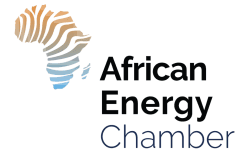


By Wale Shonibare, African Development Bank’s Director of Energy Financial Solutions, Policy, and Regulation.
ABIDJAN, Ivory Coast, January 17, 2025
Across Africa, sunlight beams down, and natural resources are abundant. Yet, despite these advantages, a pressing issue looms over the continent: the lack of access to reliable and sustainable electricity. As we prepare for the Africa Energy Summit in Dar es Salaam, Tanzania, from January 27-28, 2025, the urgency to address Africa’s energy needs cannot be overstated. Without power, Africa cannot achieve its development aspirations or claim its rightful place on the global stage. The summit presents a critical opportunity to unlock Africa’s potential and empower its people.
The Stark Reality of Energy Poverty
Currently, nearly 600 million Africans, about half of the continent’s population, still lack access to electricity. For them, daily life is illuminated by dim kerosene lamps or unreliable diesel generators—solutions that are not only costly but also harmful to the environment, perpetuating cycles of poverty and environmental degradation. Without bold action, this situation will remain unchanged, exacerbated by Africa’s rapidly growing population.
The power sector in Africa has long struggled with challenges such as low access rates, inadequate maintenance, insufficient investment, and unaffordable tariffs. Many of Africa’s public utilities face financial distress, unable to cover operating costs and maintain necessary capital expenditure, often relying on subsidies that are neither sustainable nor effective.
Moreover, most energy financing is conducted in hard currencies, leading to a currency mismatch that adds instability. Additionally, political interference in regulatory authorities across the continent hampers the implementation of policies that could drive long-term sector development.
The Path to Energy Access: Mission 300
To address this, the African Development Bank Group, the World Bank, and other partners launched Mission 300 in April 2024, aiming to provide electricity access to 300 million people by 2030. This initiative is not just about numbers; it is about transforming lives, revitalizing economies, and empowering communities across the continent.
Mission 300 focuses on accelerating electrification through grid extensions, mini-grids, and standalone solar home systems—solutions that are particularly effective in remote and fragile areas. Investments in generation, transmission, regional interconnections, and sector reform will ensure that electricity is reliable, affordable, and sustainable.
The Key to Success
Mission 300’s success depends on collective efforts from governments, the private sector, and international partners. Governments must lead by implementing crucial reforms to enhance the efficiency of the energy sector and strengthen public utilities. Competitive tendering processes for new energy projects and cost-recovery mechanisms for utilities are essential to build a robust, sustainable energy system.
The private sector is already playing a critical role by expanding renewable energy access through decentralized solutions, where traditional grid infrastructure struggles. However, more investment is needed, and multilateral development banks must work to unlock private capital for the energy sector by providing risk mitigation tools, technical assistance, and policy advocacy.
The newly launched Technical Facility Accelerator Fund offers a promising solution by providing governments with the technical support needed to reach the Mission 300 targets.
A Defining Moment
The Africa Energy Summit will be a defining moment in Africa’s journey toward universal energy access. Hosted by the Government of Tanzania, the African Union, the African Development Bank, and the World Bank, the summit will bring together heads of state, energy experts, and private sector leaders to chart a path forward.
Several African governments will present their national energy compacts, showcasing commitments to reforms and strategies for achieving energy targets. International partners, such as the Rockefeller Foundation and Sustainable Energy for All (SEforALL), will highlight their contributions to achieving the mission.
The summit will also introduce new spending commitments and initiatives aimed at mobilizing domestic resources for green energy infrastructure across the continent.
Why Now?
Technological advancements, digitization, and innovative financing models make this the perfect time to address Africa’s energy challenges. Mission 300 will not only provide electricity to millions but also drive progress in education, healthcare, and gender equality. It will reduce emissions, improve welfare, and foster financial inclusion across the continent.
As we meet in Dar es Salaam, we are reminded that energy access is not just a technical challenge; it is a moral imperative. By working together, we can transform Africa’s energy landscape and create a brighter, more prosperous future for millions.
Let’s make Mission 300 a turning point for the continent. Let’s light up Africa, one region at a time.


